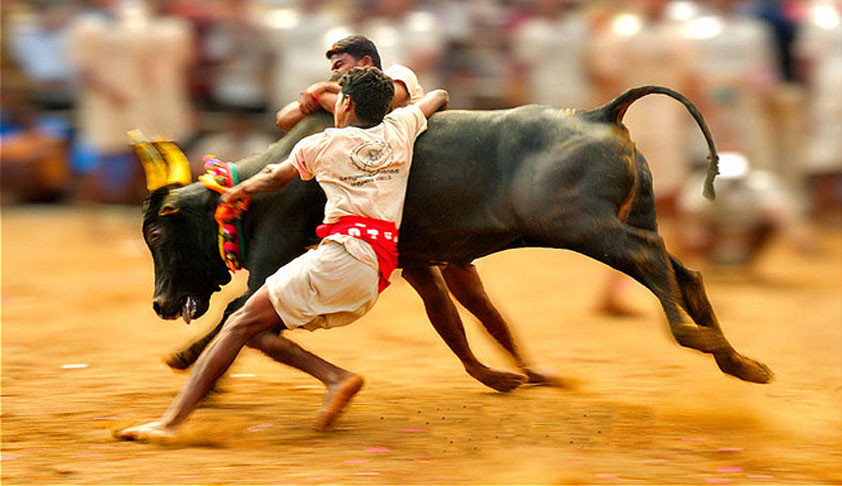2 years ago
The Jallikattu Dilemma: Navigating Animal Rights and Public Safety in the Verdict
Jellikettu
The Supreme Court's verdict on the practice of Jallikattu has ignited a contentious debate regarding the delicate balance between cultural traditions, animal rights, and human safety. Jallikattu, a bull-taming sport with deep-rooted historical and cultural significance in the state of Tamil Nadu, has faced criticism from animal rights activists for the potential harm inflicted upon the bulls involved. However, it is essential to recognize that any decision regarding Jallikattu must carefully consider the interests of both animals and humans, striking a balance that respects tradition, animal welfare, and public safety.
Jallikattu holds immense cultural and historical value for the people of Tamil Nadu. It is deeply ingrained in their traditions, serving as a symbol of bravery, valor, and communal bonding. These cultural practices play a significant role in shaping a community's identity and preserving its heritage. As such, it becomes crucial to respect and preserve these traditions while ensuring they align with evolving societal values and safeguarding the welfare of all parties involved.
One cannot ignore the concerns raised by animal rights activists regarding the treatment of bulls during Jallikattu events. The sport involves the taming of bulls, which can lead to injuries and distress for the animals. It is essential to prioritize the welfare of animals, ensuring they are not subjected to unnecessary harm or exploitation. Measures such as strict regulations, veterinary oversight, and proper training for participants can be implemented to mitigate potential risks and minimize the suffering of the bulls.
While considering the cultural significance and animal welfare aspects, one must also acknowledge the importance of human safety. Jallikattu events often attract large crowds, increasing the chances of accidents and injuries to participants and spectators alike. The Supreme Court's intervention in regulating Jallikattu was driven, in part, by concerns for public welfare and the need to prevent mishaps that could jeopardize human lives. Ensuring stringent safety measures, including crowd control, medical facilities, and comprehensive safety protocols, is crucial to minimizing risks associated with the sport.
The Supreme Court's verdict on Jallikattu sought to strike a delicate balance between preserving cultural traditions, respecting animal rights, and ensuring human safety. It recognized the significance of Jallikattu to the people of Tamil Nadu but imposed certain regulations to safeguard the welfare of animals and protect public well-being. The decision showcases the evolving nature of our society, where the rights and welfare of animals are given due consideration while simultaneously valuing cultural heritage.
To move forward in a way that satisfies all stakeholders, it is essential to foster dialogue and collaboration between cultural enthusiasts, animal rights activists, and regulatory authorities. The effective implementation of regulations and continuous monitoring of Jallikattu events can help strike an even better balance between tradition, animal welfare, and human safety. Educating participants and spectators about the ethical treatment of animals and promoting responsible behavior can also contribute to a more harmonious coexistence.
The Supreme Court's verdict on Jallikattu reflects a conscientious attempt to address the complex issues surrounding the sport. It recognizes the importance of cultural traditions, animal rights, and human safety. The path forward lies in finding common ground, where cultural heritage is respected, animals are treated with compassion, and public welfare remains a top priority. By striking this balance, we can navigate the evolving landscape of our society, preserving traditions while creating a more humane and inclusive future.
















